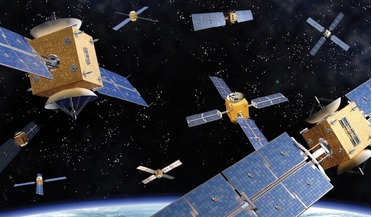 February 2019
Chaos and creation – cultural directions for the space industry
February 2019
Chaos and creation – cultural directions for the space industry
... The Declaration of Human Rights and the Outer Space Treaty, which are perhaps the most obvious starting points...what actually constitutes basic human dignity and rights yet the Outer Space Treaty does not attempt to describe what the ‘benefit of all ...
 May 2017
World needs strong space governance system
May 2017
World needs strong space governance system
... they form the framework and the primary system of global space governance. The foundational agreement of the system is the 1967 Outer Space Treaty, which is the most adhered to space treaty. More importantly, it contains several principles that have...
 May 2017
Humanity is moving towards a new reality
May 2017
Humanity is moving towards a new reality
... decades out of date. Today no one seems to believe seriously that any new widely agreed and sweeping space treaties are possible to negotiate and agree These agreements did not anticipate significant commercial activities...
 July 2017
Rapidly evolving space industry needs faster UN response
July 2017
Rapidly evolving space industry needs faster UN response
...a new range of issues This year marks the 50th anniversary of the Outer Space Treaty, the primary document of international space law. The Treaty itself contains mainly general provisions governing fundamental rights, responsibilities and obligations...
 August 2018
Flouting the rules on satellite registrations
August 2018
Flouting the rules on satellite registrations
... being a launching State - there is no restriction on it being “State of registry”. Further, under Article VIII of the Outer Space Treaty, it is the State of registry which has “jurisdiction and control” over a satellite. The Netherlands cannot claim...
 August 2021
AI in space – a legal perspective
August 2021
AI in space – a legal perspective
... measures. Moreover, elements that one might expect in a relevant TCBM include already binding requirements in the Outer Space Treaty, the Liability Convention, the Rescue and Return Agreement and the Registration Convention. These include a duty...